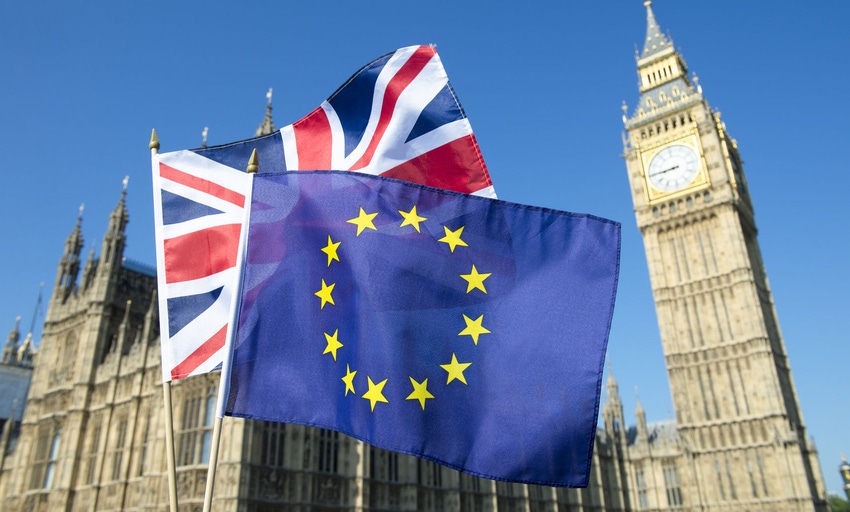Brexit is now a reality for the UK, and despite the telcos asserting their commitments to the roaming status quo, the financial burdens could become too great to swallow.
February 3, 2020

Brexit is now a reality for the UK, and despite the telcos asserting their commitments to the roaming status quo, the financial burdens could become too great to swallow.
With the January 31st deadline come and gone, the UK Government has started to warn its citizens of what Brexit actually means. Very little will change over the next 11 months, but come December 31st, the ‘grace period’ will have concluded and change will be a reality.
New passports might have to be ordered, the European Health Insurance Card (EHIC) will no-longer be valid, an international driving permit (IDP) might have to be sought and the Government cannot guarantee you won’t be charged a small fortune for cruising down the digital highways.
While it might seem like another era, EU roaming regulations were only introduced in 2017. Some telcos had built ‘roam like at home’ features into tariffs already, but this was a market reaction to impending regulation. Until the EU started making a fuss, the telcos and the GSMA were more than happy to charge ludicrous amounts and attempt to justify them in a truly laughable manner.
Using data when travelling to Europe has become almost second nature to UK consumers nowadays and few would want to return to the days of huddling around the wifi hotspots. The UK telcos have been keen to point out there are no intentions to return to the dark days of ‘bill shock’, but soon it might be out of their control.
“At O2, we are committed to providing our customers with great connectivity and value when they travel outside the UK,” an O2 spokesperson said. “We currently have no plans to change our roaming services across Europe. We will be working closely with the UK government to try to maintain the current EU ‘Roam like at home’ arrangements once the UK leaves the EU.”
Vodafone and Three have also confirmed Brexit will not have an impact on EU roaming for their customers, while BT/EE are yet to provide comment.
The issue which is at the heart of this debate is how much control the UK telcos actually have.
As it stands, termination fees on international networks are strictly managed and limited by the European Commission. This will no-longer be the case for UK telcos come January 1st, 2021; European telcos will be free to charge whatever termination fees they see fit for their network.
In the years passed since the introduction of EU roaming rules, telcos have effectively seen reciprocal revenues for roaming, as it was simply a case of any individual is equal to any other on a different network, irrelevant of destination or origin. However, should some nations decide to raise the termination fees, the telcos will have to decide whether to absorb these costs or raise prices for consumers to compensate and maintain profitability. This is a ‘doomsday’ scenario, though we suspect it wouldn’t take long for telcos to realise absorbing the cost in some areas is not feasible.
As you can see from the table below, the numbers do not add up.
Country | Visitors from UK | Visitors to UK |
Spain | 15.6 million | 2.53 million |
Germany | 2.8 million | 3.26 million |
France | 8.6 million | 3.69 million |
Netherlands | 2.7 million | 1.95 million |
The question which remains is how much European telcos will decide on charging for termination fees for UK customers and how the UK telcos will react. For any telco, simply watching costs go up and doing nothing is not an option. If there are more visitors from the UK than going the other direction, termination fees will start to add up.
What is worth noting is that some telcos in the UK are more at risk than others. As part of the Telefonica Group, O2 could be protected in some European nations, as would Vodafone, but the risk cannot be completely mitigated. There is no-such thing as a genuine pan-European network, and partnerships might well be tested.
Some might suggest there is an opportunity for the UK and Europe to strike a deal, and while this might be the case, there is one significant argument against it; why would Europe want to help a post-Brexit Britain?
Brexit has looked like a painful procedure to anyone watching. What the material impact will be is anyone’s best guess for the moment, but there are some aspects we already know. The legislative agenda has slowed due to a disproportionate amount of time being spend debating Europe. Relationships have been damaged. Corporations face a restructure of some degree. Travel to Europe will be different for consumers.
We do not know how this will impact our day-to-day lives exactly, but Europe will only help to a degree. If they help too much or it looks attractive, leaving the European Union might become an option for some nations. This is a very cynical view to take, but it is probably also true.
The other factor you have to consider is the work some countries will put in to protect valuable tourism industries. The Spanish, Greeks and Portuguese will not want to lose the money which flows from the UK into their own economies and might be in a position to negotiate their own localised deals.
This is very much crystal ball gazing at the moment. There might be a deal to protect the UK consumer, but it is just as likely that there will not. The European powers control the roaming fate of the UK consumer, not the UK telcos.
UPDATE: 03/02/2019
Statement from BT/EE:
Our customers enjoy inclusive roaming in Europe and we have no plans to change this based on the Brexit outcome.
About the Author(s)
You May Also Like








.png?width=300&auto=webp&quality=80&disable=upscale)


_1.jpg?width=300&auto=webp&quality=80&disable=upscale)


.png?width=800&auto=webp&quality=80&disable=upscale)